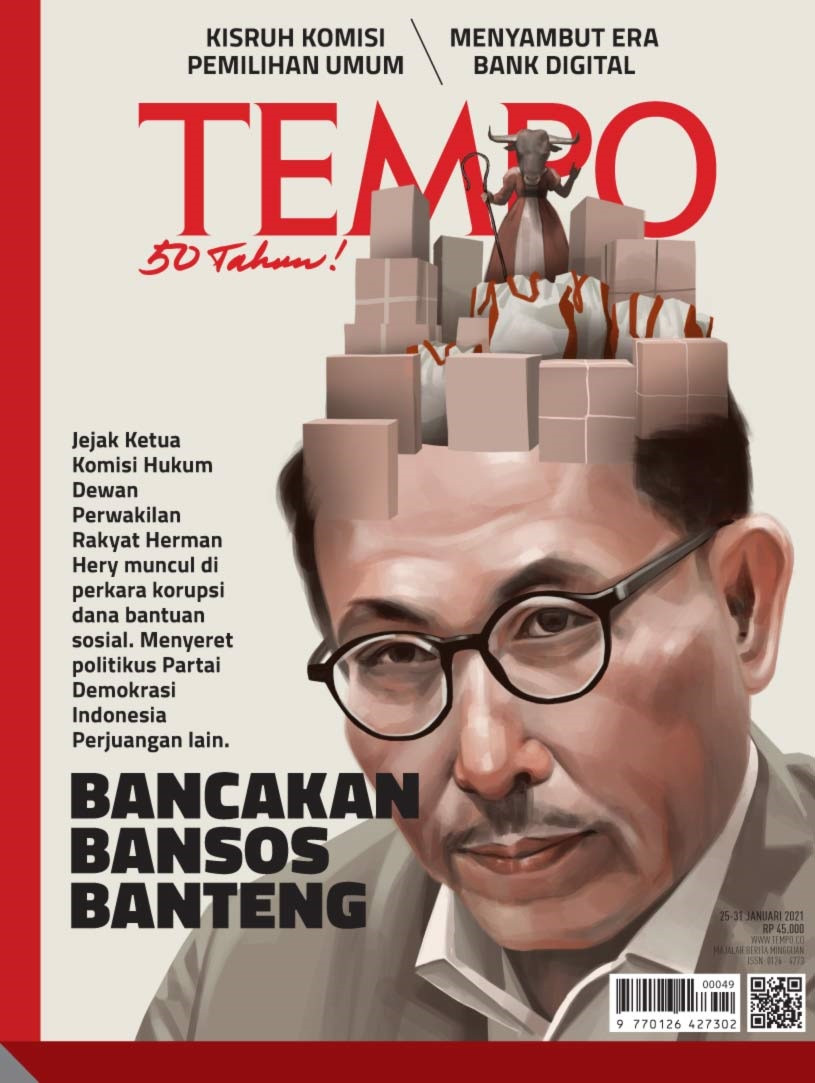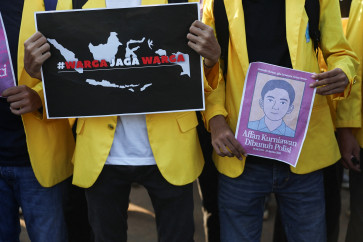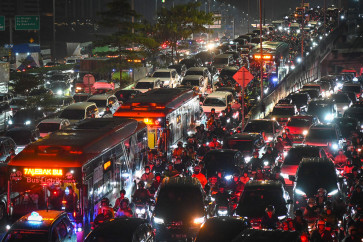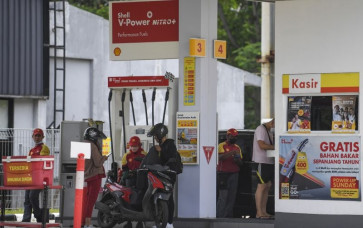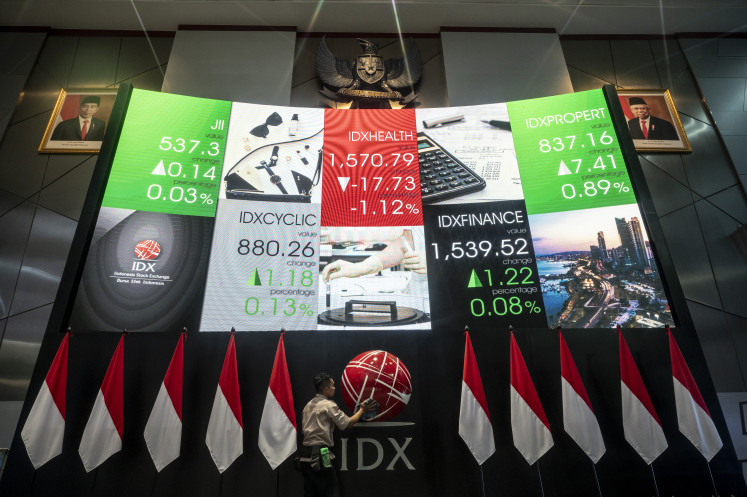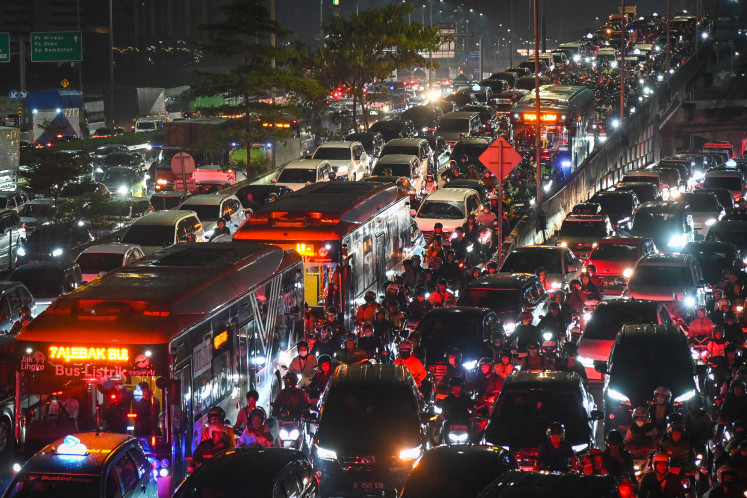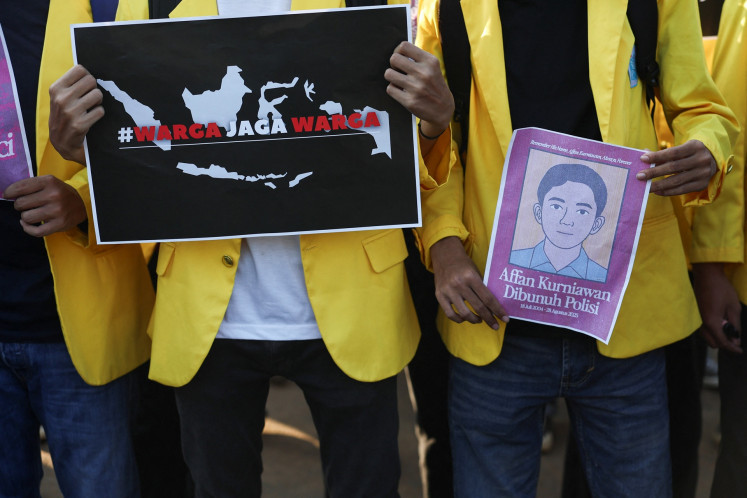Popular Reads
Top Results
Can't find what you're looking for?
View all search resultsPopular Reads
Top Results
Can't find what you're looking for?
View all search resultsTimely ‘Tempo’
As in the case of Tempo, in-depth reports that enlighten the nation, as the results of its investigative journalism, are the recipe.
Change text size
Gift Premium Articles
to Anyone
T
empo, one of the country’s most recognized press institutions, if not the most, celebrated its 50th anniversary last week. Established on March 5, 1971, the weekly magazine gained the prominence it enjoys today because of its persistent and consistent determination to play a role as a responsible part of the press, the fourth pillar of democracy.
Tempo, one of the shareholders of The Jakarta Post, turned 50 with pride, thanks to its courage and fearlessness in defending civil liberty. It calls a spade a spade especially when exercising its control of the government through its reports. It was not afraid of criticizing long-time ruler Soeharto, who fell from grace on May 21, 1998, four years after he banned Tempo, Detik and Editor weekly magazines.
The ban came after Tempo ran at least six investigative reports on the questionable purchase of 39 secondhand warships from former East Germany. The magazine suspected possible markup of prices in the warship purchase. The shopping raised Tempo’s eyebrow given that the ships were too old to operate and suitable only in four-season countries, not in warm waters like those of Indonesia. Soeharto was outraged because the reports seriously damaged the reputation of his most favorite Cabinet member, then-research and technology minister BJ Habibie, who later succeeded him in 1998.
Ironically, it was Habibie who lifted the press ban, which enabled Tempo to republish. The magazine, however, was not able to relaunch until 2002.
The timing of the press ban was also significant for Soeharto as he made the decision only five months before he hosted the Asia-Pacific Economic Cooperation (APEC) Summit in Bogor, West Java. “There is a media outlet that is fishing in murky water and pitting people against each other. This is disturbing to national politics and stability,” Soeharto said.
Soeharto easily punished Tempo and forced more than 200 journalists to lose income and jobs. But he could not kill the spirit that preserved the true soul of free press. Not long after the ban, the Alliance of Independent Journalists (AJI) was formed as an antithesis to the government-controlled media.
These days, however, state control is no longer the major threat to the press. The new threat, or challenge, takes shape in digital and social media platforms — which are controlled by Big Tech like Google and Facebook. They have “hijacked” the role of the mainstream media.
Tempo has anticipated the new landscape. To survive the new competition, it is not enough for the media, including Tempo, to maintain accuracy and offer interesting reports. As in the case of Tempo, in-depth reports that enlighten the nation, as the results of its investigative journalism, are the recipe.
As part of its migration to the digital world, Tempo, its daily newspaper and its English edition started to publish in digital format as of January of this year. As if the daunting challenge knows no end, Tempo, as well as the mainstream media in the world, is struggling to find a business model that will ensure its better future.
Happy golden anniversary Tempo! As is often said during the COVID-19 pandemic, stay healthy, strong and keep a distance (from the rulers).

